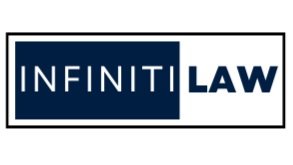Despite rhetoric about the US having a “tradition of welcoming immigrants from around the world,” the release of official strategies to ensure that America continues “to lead as the world’s most innovative economy, to develop the industries of the future, and to harness innovation to help address our Nation’s most important challenges,” and countless bills being introduced to revise all or parts of the US immigration system and endless talk of new startup visas, no actions have in actuality been taken that make visas easier to obtain for startup founders and tech professionals. The opposite, in fact, is true as the US Citizenship and Immigration Service (USCIS) has implemented new policy memorandum that re-interpret many existing laws in more restrictive ways over the past two decades. Navigating the immigration minefield is the key to successfully establishing or expanding your tech company in the US.
The H1b visa is one of only several visas that work for tech companies. But don’t blink or you’ll miss your chance at this visa! There is an annual quota limit of 65,000 new H1b visas per fiscal year; in my nearly 18 years of practice, there are only a few years total (and these were in the depths of a recession) where the quota was not reached within the first week of the filing period. The USCIS fiscal year runs from October 1st to September 30th. H1b applications can be filed up to 6 months prior to October 1st (requesting an employment start date of October 1st). Thus, the H1b filing period starts on April 1st of every year. All applications received within the first five business days of the start of the filing period are included in the H1b lottery if the quota is reached within any of those first five business days. Being chosen in the H1b lottery means that you have the privilege of having your case processed by the USCIS. Note, a Labor Condition Application needs to be filed and certified by the US Department of Labor prior to the H1b filing with the USCIS so it is important to start the process as early as possible.
The general requirements for an H1b are: (1) the position for which the employee is being hired has to require a bachelor’s degree in a specialty field; (2) the employee must have a bachelor’s degree in that field; and (3) the employer must pay the higher of the actual wage paid to other employees in that position or the prevailing wage in the industry for that position (typically obtained from the USDOL wage database). Beyond this though, startups should be prepared for certain other hurdles. First, you will be required to show that your company has the funds required to pay the wage promised. Submitting last year’s tax return is obviously not always possible so more creativity is required in startup situations. Alternative means such as proof of venture capital funding, contracts secured for specified amounts, and even private funds available can be used. Second, the H1b visa rules were written with an employer-employee model in mind so visas for a company founder (or other person with any significant ownership in the company) are more difficult. The key to overcoming this barrier for founders is to show that there is some external check on the founder’s authority. Examples of evidence that can be used: (a) evidence of an independent Board of Directors which has the ability to hire, fire, pay, supervise or otherwise control the founder’s employment, and/or (b) existence of preferred shareholders, investors, etc that control the terms and conditions of the founder’s employment.
